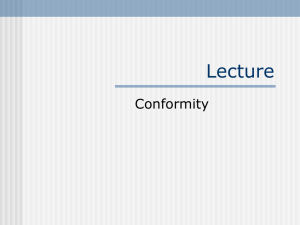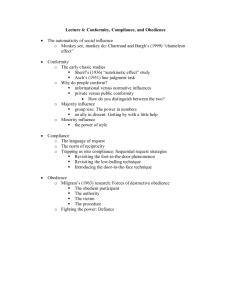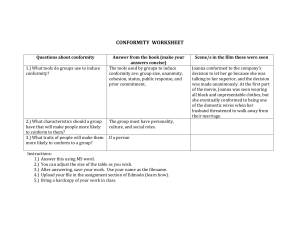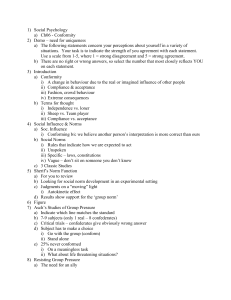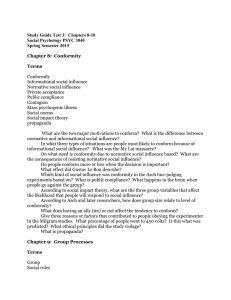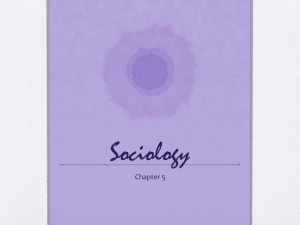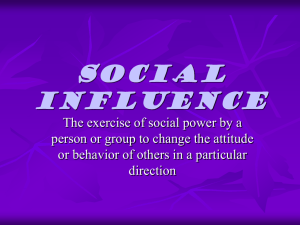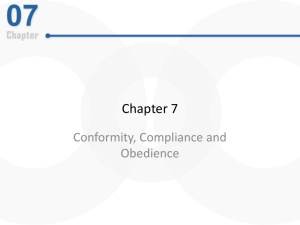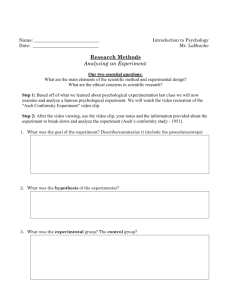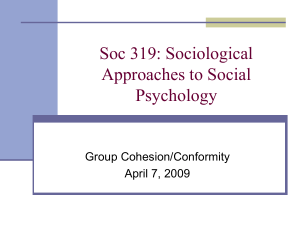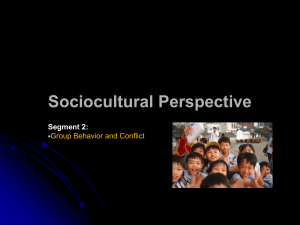Social Influence II
advertisement
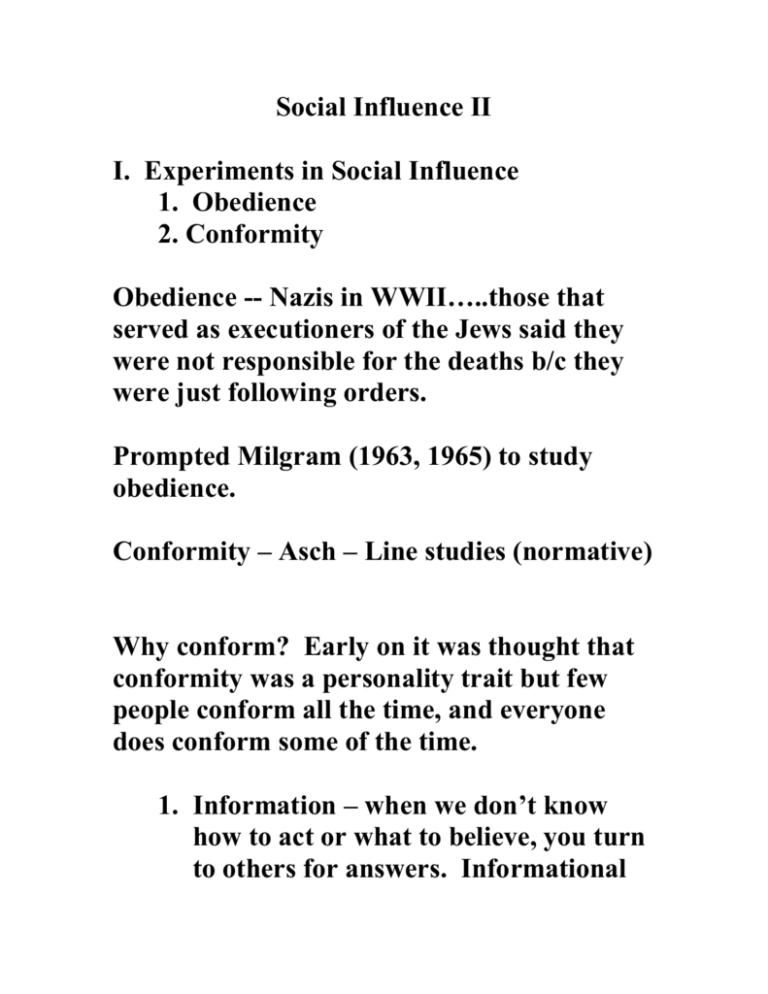
Social Influence II I. Experiments in Social Influence 1. Obedience 2. Conformity Obedience -- Nazis in WWII…..those that served as executioners of the Jews said they were not responsible for the deaths b/c they were just following orders. Prompted Milgram (1963, 1965) to study obedience. Conformity – Asch – Line studies (normative) Why conform? Early on it was thought that conformity was a personality trait but few people conform all the time, and everyone does conform some of the time. 1. Information – when we don’t know how to act or what to believe, you turn to others for answers. Informational social influence……if a major storm happens people talk with their neighbors and friends about (autokinetic experiments). 2. Normative social influence—fear of rejections from a group for those that don’t follow norm……public compliance but not private acceptance. (Asch studies) Autokinetic Effect – effect whereby a stationary point of light in a dark room appears to move. (Informational) Factors that affect Conformity 1. Situational – a) more conformity when ambiguous or difficult judgments are needed. -----b) size of the group….more conformity up to about 4 people…. -----c) unanimity – more conformity with unanimity of opinion. 2. Personal factors – culture…attraction to the group …….group cohesion--measure of individual members’ attraction to the group. 3. Gender ----women conform more on masculine tasks and men more on feminine tasks. Social Impact Theory – social force felt by a person is a function of strength, immediacy, and number of sources present……..just like physical impact (example light falling on a table is a function of the strength of the lights, their distance, and their number. (SIN) Deviation and Resistance to Social Influence ---2 Types Anti-conformity – doing the exact opposite of what the person observes others doing. (Reactance) Independence – making up one’s own mind about how to act and not simply responding to group pressure Why do people not conform (3 theories) 1. Reactance – if a persons freedom to perform certain behaviors is threatened he/she will experience motivational arousal aimed at regaining the freedom…..a form of anti-conformity 2. Desire to be unique—most societies find some form of uniqueness desirable. Standing out from the crowd by not conforming---a form of independence. 3. De-individuation--- lose our individuality in a crowd and act in ways we normally would not……a form of independence
